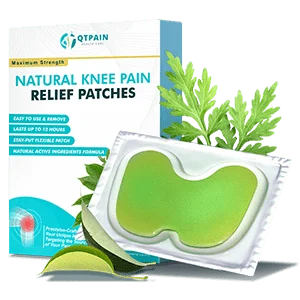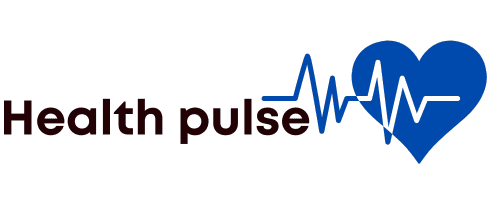Properly managing pancreatic diseases such as pancreatitis, pancreatic insufficiency, and pancreatic cancer, as well as supporting overall health and optimizing nutrient absorption, requires a well-planned and personalized diet.
Key takeaways:
- A tailored pancreatic diet caters to the unique needs of someone with a pancreatic condition, fostering overall well-being and symptom relief.
- Nourishing the pancreas involves prioritizing nutrient-rich choices, such as lean proteins, wholesome grains, and healthy fats like olive oil — while steering clear of high-fat, sugary, and heavily processed foods.
- Consult with healthcare professionals or dietitians to create a personalized diet plan for your pancreatic health.
What is a pancreatic diet?
A pancreatic diet is a specialized way of eating designed for people with pancreatic diseases like pancreatitis, pancreatic insufficiency, and pancreatic cancer. Though these diets may seem similar, they are unique in their goals. Each person with a pancreatic condition needs a personalized diet to support their pancreas, ease symptoms, and improve overall health. Understanding the differences in these diets can help you make better choices for managing your specific pancreatic condition.
You can still benefit from pancreas-friendly diets even if you don’t have a pancreatic disease, as a pancreatic diet promotes good health and may even help prevent certain conditions.
A pancreatic diet is designed to meet the unique needs of different pancreatic conditions, aiming to support the health of the pancreas, relieve symptoms, and improve overall well-being.
Pancreas-related conditions
The pancreas is essential for digestion and hormone regulation, impacting our overall health. It produces enzymes that break down food and help absorb nutrients. It also releases insulin and glucagon to balance blood sugar levels and provide energy to our cells. Maintaining this balance is vital for staying healthy and avoiding digestive and metabolic problems.
Pancreatitis
Pancreatitis is when the pancreas becomes inflamed, and during a severe episode, it may have trouble making enough digestive enzymes, which can cause problems with digestion and nutrient absorption.
Acute pancreatitis
Acute pancreatitis can happen because of gallstones, alcohol, certain medications, infections, or high triglyceride levels. During a severe episode, the pancreas may struggle to produce enough digestive enzymes. To facilitate the healing process of the pancreas, it may be recommended to start with clear liquids and then transition to a diet that is low in fat but rich in nutrients. This approach allows the pancreas to rest, which can improve symptoms such as abdominal pain, nausea, and diarrhea.
In some cases, if solid food can’t be tolerated, clear liquids might be administered temporarily through a feeding tube or IV line to provide nutrients and give the pancreas time to rest. If you think you have pancreatitis, talking to a healthcare provider is crucial.
Chronic pancreatitis
Chronic pancreatitis is when the pancreas stays inflamed for an extended time, causing damage and affecting its function. This can be caused by factors like prolonged inflammation, cystic fibrosis, pancreatic tumors, or previous pancreatic surgery, leading to ongoing problems with the pancreas.
In the past, people with pancreatitis were told to avoid fats altogether. Now, experts recommend a balanced and healthy diet, including good fats from vegetables. Everyone’s dietary needs are different, especially if dealing with pancreatic conditions. Therefore, you may get specific instructions from your healthcare provider or dietitian regarding fat or protein intake, and it is imperative to adhere to this information.
People with chronic pancreatitis are at risk of malnutrition, which can lead to infections, fractures, and other problems. That’s why it’s essential to maintain a carefully balanced diet to support overall health and prevent complications. In some severe cases, a feeding tube may be needed to provide proper nutrients. The main goal of a pancreatitis diet aims to ease the strain on the inflamed pancreas during acute episodes.
If you experience signs of pancreatic insufficiency, seeing a doctor for proper evaluation and medical advice is critical.
Pancreatic cancer
When dealing with pancreatic cancer, dietary choices become important. While a diet alone cannot cure the disease, proper nutrition is imperative to support overall health and well-being, especially during treatment and recovery.
The exact cause of pancreatic cancer is often unclear, but factors like alcohol, smoking, family history, age, and certain genetic conditions might increase the risk of developing this disease. Hence, adopting a healthy diet can be beneficial in managing the condition and maintaining overall wellness.
Pancreatic insufficiency
Pancreatic insufficiency happens when the pancreas doesn’t make enough enzymes to properly break down and absorb nutrients from food. Chronic pancreatitis, cystic fibrosis, pancreatic tumors, or pancreatic surgery can cause this. As a result, someone with pancreatic insufficiency may not get enough nutrients from their food, leading to deficiencies. To help with this, a diet focused on enzyme replacement therapy is usually recommended.
A pancreatic insufficiency diet’s primary goal is to ensure the body absorbs enough nutrients and avoid malnutrition.
Signs of pancreatic insufficiency
Some of the signs of pancreatic insufficiency include:
- Loose, greasy, foul-smelling stools
- Abdominal discomfort or pain
- Unexplained weight loss
- Excess gas or flatulence
- Diarrhea
- Bloating
If you experience signs of pancreatic insufficiency, seeing a doctor for proper evaluation and medical advice is critical.
Diet recommendations for pancreatic conditions
The nutritional goals and dietary recommendations may differ for various pancreatic diseases or conditions. However, there is much overlap in the types of foods to be included or avoided.
Foods to include
The list consists of:
- Lean proteins. Chicken, turkey, fish, tofu, eggs, nut butter, beans, protein bars.
- Fresh fruits. Berries, ripe bananas, applesauce, cooked apples.
- Fresh vegetables. Dark leafy green vegetables.
- Whole grains. Brown rice, quinoa, oats, whole wheat bread, whole grain pasta, barley.
- Healthy fats (in moderation). Olive oil, avocado, nuts, seeds, flaxseed oil.
- Low-fat dairy or plant-based alternatives. Skim milk, greek yogurt, cottage cheese — in moderation, if tolerated. Individuals with lactose intolerance can opt for lactose-free dairy alternatives or plant-based options like soy, almond, or a nut based dairy alternative.
- Low-sugar or sugar-free food. These options are helpful for those with diabetes or managing blood sugar levels.
Foods to avoid
If you have pancreatic disease, foods to avoid include:
- Alcohol. You should abstain from alcohol completely.
- High-fat and greasy foods. Fried foods, potato chips, fatty meats, red meats, organ meats, butter, and lard.
- Full-fat dairy products. Whole milk, cheese, cream, and creamy sauces.
- Processed and sugary foods. Cookies, cakes, candies, and sugary cereals.
- Spicy dishes and heavily seasoned foods. Blander foods may help avoid flares.
Additional dietary tips for pancreatic disease
In addition to avoid and including certain foods, here are some other tips if you have pancreatic disease:
- Hydration. It’s imperative to stay hydrated to support digestion and overall health.
- Healthy fats. While healthy like olive oil, avocado, nuts, and seeds benefit many, they may not be well-tolerated by everyone with a pancreatic condition and should be consumed in moderation. Listening to your body and working with a healthcare professional or dietitian is essential to determine the best fat sources and amount to consume for your specific situation.
- Low-fat dairy. Like healthy fats, low fats may need to be more restricted in certain people with pancreatic conditions. Depending on your pancreatic disease, your healthcare provider or dietitian may recommend you restrict all fats to a certain amount per day.
- Small, frequent meals. Opt for smaller, more frequent meals to reduce the digestive workload on the pancreas and minimize symptoms. Five to six small meals throughout the day is typically recommended.
- Enzyme replacement therapy. If a healthcare professional has prescribed enzyme replacements, taking your pancreatic enzyme supplements with each meal is essential to aid digestion and nutrient absorption.
- Balance and moderation. Aim for a balanced diet that includes a variety of nutrient-rich foods, and avoid excessive consumption of processed, sugary, and greasy foods.
- Individualized approach. Work closely with healthcare professionals or a registered dietitian to create a personalized diet plan that effectively suits your needs and manages your pancreatic condition.
Mediterranean diet
Some diets, like the Mediterranean diet, share similar principles that can be good for pancreatic health and may help prevent certain pancreatic diseases. Although these diets are not explicitly designed for pancreatic conditions, their focus on whole, nutrient-rich foods can support overall health and benefit the pancreas.
The Mediterranean diet is good for the pancreas because it includes many healthy foods like fruits, vegetables, whole grains, lean proteins, and healthy fats like olive oil. This diet is rich in antioxidants and anti-inflammatory properties, contributing to overall health and potentially reducing the risk of certain pancreatic diseases. By following the Mediterranean diet, you can enjoy a delicious and wholesome way of eating that benefits your overall well-being, including your pancreatic health. Some medical providers may even recommend following this diet for people with mild pancreatitis.
Final word
A well-balanced and carefully tailored diet is vital in managing pancreatic diseases such as pancreatitis, pancreatic insufficiency, and pancreatic cancer. Moreover, for healthy individuals, adopting a pancreas-friendly diet can help to prevent pancreatic and other health conditions like heart disease.
While common dietary principles apply to all pancreatic conditions, it is essential to recognize that everyone has unique needs based on their specific diagnosis and health status. Working closely with qualified healthcare professionals, including doctors and registered dietitians, is advised to ensure the most effective and safe dietary approach for your individualized needs. Their expertise and guidance can help you navigate the complexities of your pancreatic condition, optimize nutrient absorption, alleviate symptoms, and improve overall well-being.
Resources:
- Nutrients. Nutritional Support in Pancreatic Disease.
- UpToDate. Patient Education: Chronich Pancreatitis (Beyond the Basics).
- UpToDate. Patient Education: Acute Pancreatitis (Beyond the Basics).
- Standford University: Digestive Health Center Nutrition Services. Nutrition Guidelines for Chronic Pancreatitis.






